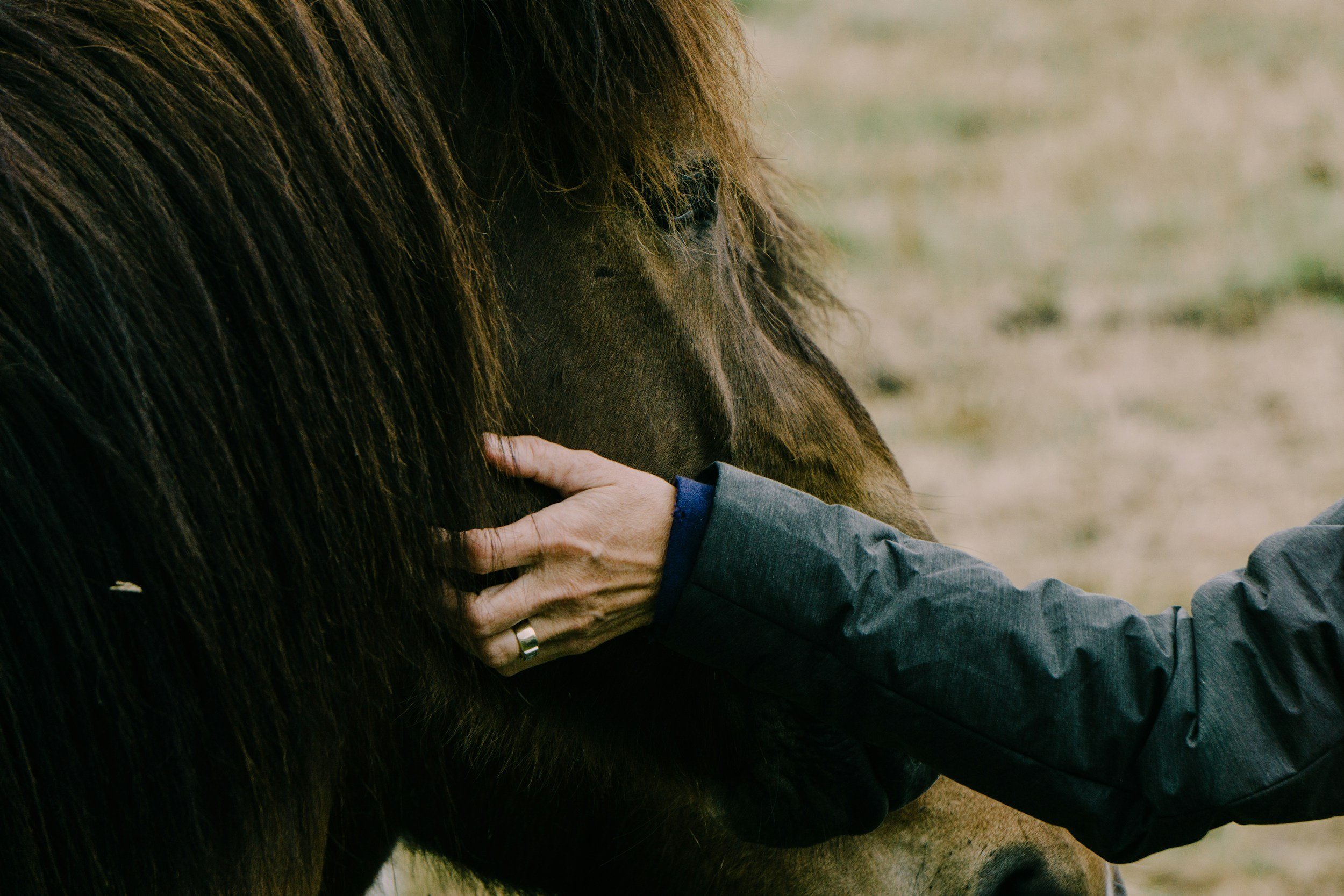
Equine Assisted
Personal Development
Coming Spring 2024
What is an EAP Coach?
Simply put, it’s using the natural attunment of horses to help bring change in your life.
Connecting with a horse can help someone recognize and realize the areas of their life where changes need to be made. By co-regulating the nervous system we can help to determine patterns that are keeping you stuck, because when we can regulate the nervous system, we can see where healing needs to happen and where life resolutions are possible.

How Do Horses Co-Regulate the Nervous System?
Mirroring and Attunement
Heart Rate Synchronization
The Role of Rhythmic Movement
Non-Judgmental Presence
Grounding Through Touch and Sensory Experience
Breathing and Relaxation
Mirroring and Attunement:
Horses are highly attuned to their environment and the emotional states of others, which makes them excellent partners in therapy. They have an innate ability to "mirror" human emotions and non-verbal cues. When humans interact with horses, the horse responds to their emotional state, reflecting agitation, calmness, or anxiety. Through this mirroring, horses help individuals become more aware of their own internal states and emotional triggers, which is critical for nervous system regulation.
Heart Rate Synchronization:
Research has shown that when humans and horses interact, there is often a synchronization of heart rates. This phenomenon can have a calming effect on the human nervous system, especially for those with heightened anxiety or PTSD. The slow and rhythmic nature of a horse’s movements can help the human nervous system shift from a state of fight-or-flight (sympathetic dominance) to rest-and-digest (parasympathetic dominance).
The Role of Rhythmic Movement:
Riding or simply walking with a horse can create a rhythmic, predictable motion that helps regulate the human nervous system. This rhythmic motion mimics the natural patterns in the body, like heartbeat or breathing, and can soothe a dysregulated nervous system. The sensation of the horse’s movement provides a calming, grounding effect, which can be particularly beneficial for people with anxiety, trauma, or sensory processing disorders.
Non-Judgmental Presence:
Horses do not judge; they live in the moment and respond purely to the energy and emotions of the present. This non-verbal, non-judgmental interaction creates a safe space for people to explore their emotions without fear. The act of being in the presence of a large, gentle animal can encourage a sense of safety, trust, and calm, all of which are essential for nervous system co-regulation.
Grounding Through Touch and Sensory Experience:
Touch is a powerful regulator of the nervous system. Grooming a horse, feeling its coat, and connecting physically with such a large, calming presence can be deeply grounding. This tactile engagement helps the brain down-regulate stress responses and promote relaxation.
Breathing and Relaxation:
Horses naturally breathe deeply and slowly when they are relaxed, and humans often subconsciously mimic this breathing pattern when they are in the presence of a calm horse. Deep, diaphragmatic breathing activates the parasympathetic nervous system, promoting relaxation and recovery from stress.
